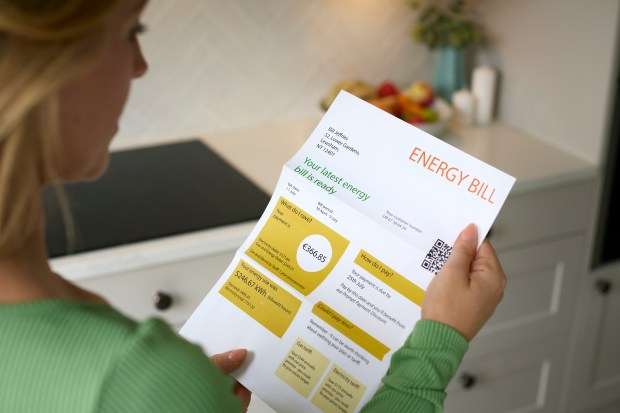HOUSEHOLDS are braced to see their bills rise by hundreds of pounds next month as “awful April” bites.
Price increases will impact everything from energy to council and car tax as well as broadband and mobile tariffs.
It’s been estimated that the combined price rises could add a huge £660 to annual household costs.
So, it’s important to check that you’re paying as little as possible ahead of the increases coming into effect.
Here are all the the bills that will increase next month and how you can avoid paying more than you need to.
Energy
From April 1 the energy price cap will increase, adding £9.25 a month, or £111 a year, to the average household’s bills.
Energy regulator Ofgem sets the cap and has confirmed the average dual fuel bill for those not on a fixed deal will rise from £1,738 to £1,849 a year.
It is the third consecutive quarter that the around 22million households on standard variable tariffs (SVTs) will see an energy price increase.
And, the figures quoted by Ofgem are for an average household, so if your a high energy use household your bills will be higher.
The unit price of gas will increase from 6.34p per kilowatt-hour (kWh) to 6.99p per kWh while electricity is going up from 24.86p/kWh to 27.03p/kWh.
Ahead of the increase coming into effect there are some simple checks that will ensure you’re being billed correctly, including ensuring you have taken an accurate meter reading ahead of the price cap increase on April 1.
It is also worth looking to see if you’d be better off switching to a fixed-price tariff.
Martin Lewis of Money Saving Expert has advised switching to a fixed price tariff if you can find a deal that’s 3% more than the Jan-Mar cap or 3% less than the Apr-Jun cap.
Moving to a fixed price tariff ties you into a rate for the duration of the term.
So, while you’re not subject to price cap increases, you also won’t benefit if the cap is lowered during the quarterly reviews.
While there is a risk to this, experts do not expect to see the price cap fall this year.
There are also steps you can take to minimise your energy usage or alter the times you use energy to take advantage of off-peak offers.
Water
Households in England and Wales will see their water bills increase from April 1.
The average annual bill will increase by £123.
Ofwat has approved five years of price increases, the largest of which will be seen in April, followed by smaller percentage increases in each of the subsequent four years.
The exact increase residents will see will be set by individual water companies.
For example, United Utilities and South West Water have confirmed increases of 32% and 23%, respectively.
Unfortunately, consumers cannot simply switch to get a better deal and are tied to their regional water providers.
However, it is worth considering if installing a water meter at your property would help you reduce costs.
A meter can lower bills for about 38% of households, particularly if fewer people live the property than the number of bedrooms.
It’s also important to be vigilant about your water use and watch out for leaks and drips – even a leaking tap could be adding to your bills.
If you’re struggling it is worth contacting your water company to see what help is on offer and if you might be eligible for a social tariff.
Council tax
Households across the UK are facing council tax increases of up to 15.6% this April.
The average council tax rise is expected to be 5%, which will add over £100 to a typical Band D property’s annual bill.
But in 29 local authorities areas across the UK, residents could face larger increases amounting to up to £213 a year.
Our interactive map will show how much bills are set to go up in your area.
In England, local authorities can increase council tax by up to 4.99% each April without holding a referendum and this is the increase most people will see.
Any increase above this limit requires a local referendum to gain public approval, so if you’re impacted it’s likely you’ll already know.
Councils in Scotland are not subject to such strict constraints and can implement larger increases without a referendum.
Councillors in Falkirk have approved the largest council tax increase in the UK, with residents facing rises of 15.6%.
If you’re worried about your council tax bill there are steps you can take.
The amount of council tax you pay is set by the value of your home, with the average value home being placed in Band D.
If you think your property is in the wrong band it might be worth requesting a revaluation, however be aware there is a risk it could be placed into a higher band rather than a lower one.
It’s also worth checking to see if you could be entitled to a discount on your bill – or even if it could be wiped completely.
The discounts available include a 25% reduction for those living alone and reductions of up to 100% for pensioners on low incomes.
Households struggling on low incomes may also be entitled to reductions, which are set regionally by local authorities.
So, if you think you might be eligible speak to your council about what support is available.
Mobile and broadband
More than 40 million mobile and broadband customers are set to face price hikes this April.
The exact amount bills will rise will depends on your provider and when you signed up to your contract date.
For example, many Virgin Media broadband customers are looking at a 7.5% rise.
However, if you signed up after January 9 this year, your monthly bill will increase by £3.50.
O2 mobile customers will see a fixed increase of £1.80 a month, regardless of their contract date.
And BT customers who signed up after April 10, 2024 will face a fixed £3 pound monthly increase, while those who signed up before then will see a 6.4% rise.
If you signed up for a contract after January 17 2025, this April’s increase will be set out precisely in your contract.
But if you signed up before this date you might be facing an inflation-linked rise and need to check with your provider.
If your in contract there’s little you can do about the increase, unless you’re eligible to switch to a social tariff.
Social tariffs are available to households on certain benefits and could save you £200 a year.
So, if you might be eligible it’s worth speaking to your provider.
Just make sure you’re not going to be stung by an an exit fee from your current contract.
Many more people could make a saving by shopping around for a new contract.
It is believed 32million mobile customers – that’s 37% – are out of contract and research by Which? suggests that switching providers after your contract ends could save you around £256.
So, don’t be afraid to haggle.
TV licence
April’s bill increases will see the price of a standard colour TV Licence rise from £169.50 to £174.50 a year.
The price of a black and white licence will also go up from £57 to £58.50.
For those paying monthly the increase will add £5 a month to the price of a colour licence or 42p a month for those with a black and white licence.
The fee funds much of the BBC‘s operations and can be paid monthly, quarterly or annually.
Legally, if anyone in your household watches live television the property needs to be covered by a licence.
If you’re caught watching live television, including that broadcast across Sky or streaming services, without a licence you could face a fine of £1,000, plus any legal costs and/or compensation
But, if you only ever watch television using catch-up services and never watch live TV across any platform you do not need a licence.
If you’re watching BBC iPlayer be aware that you also wont be able to legally record or download programming without a licence.
If you don’t want to consider cancelling there are discounts available including for those over 75.
If you’re living in residential care or sheltered accommodation, or if you’re registered blind, you could be entitled to a discount.
And, you can claim a free TV licence if you’re 75 or older and claim Pension Credit or live with a partner who receives the benefit.
You can apply for your discounted or free licence online or by calling 0300 790 6071.
Car tax
April will bring some big changes to car tax charges.
Rates of Vehicle Excise Duty (or car tax) will rise dramatically for the highest emitting motors, potentially leading to an increase of nearly £3,000.
From April 1, 2025, any car that emits more than 255g/km of CO2 will be required to pay an additional £2,745 to use the road.
This means some drivers could receive a significant hit, making their VED costs jump to a mind-boggling £5,490 for the first year.
The costly car supplement, for those with motors which cost more than £40,000 when new, is also set to rise to £425 per year, up from £410.
This additional fee is taken from the second to the sixth year your car is on the road.
And, for the first time drivers of electric and low-emission vehicles will pay car tax.
You can quickly check the rate of tax you’ll pay on the government website.
If you’re buying a car you can use this website and the 11-digit reference number from the car’s log book to check the rates will be affordable.
What energy bill help is available?

There’s a number of different ways to get help paying your energy bills if you’re struggling to get by.
If you fall into debt, you can always approach your supplier to see if they can put you on a repayment plan before putting you on a prepayment meter.
This involves paying off what you owe in instalments over a set period.
If your supplier offers you a repayment plan you don’t think you can afford, speak to them again to see if you can negotiate a better deal.
Several energy firms have schemes available to customers struggling to cover their bills.
But eligibility criteria vary depending on the supplier and the amount you can get depends on your financial circumstances.
For example, British Gas or Scottish Gas customers struggling to pay their energy bills can get grants worth up to £2,000.
British Gas also offers help via its British Gas Energy Trust and Individuals Family Fund.
You don’t need to be a British Gas customer to apply for the second fund.
EDF, E.ON, Octopus Energy and Scottish Power all offer grants to struggling customers too.
Thousands of vulnerable households are missing out on extra help and protections by not signing up to the Priority Services Register (PSR).
The service helps support vulnerable households, such as those who are elderly or ill.
Some of the perks include being given advance warning of blackouts, free gas safety checks and extra support if you’re struggling.
Get in touch with your energy firm to see if you can apply.
Do you have a money problem that needs sorting? Get in touch by emailing money-sm@news.co.uk.
Plus, you can join our Sun Money Chats and Tips Facebook group to share your tips and stories








